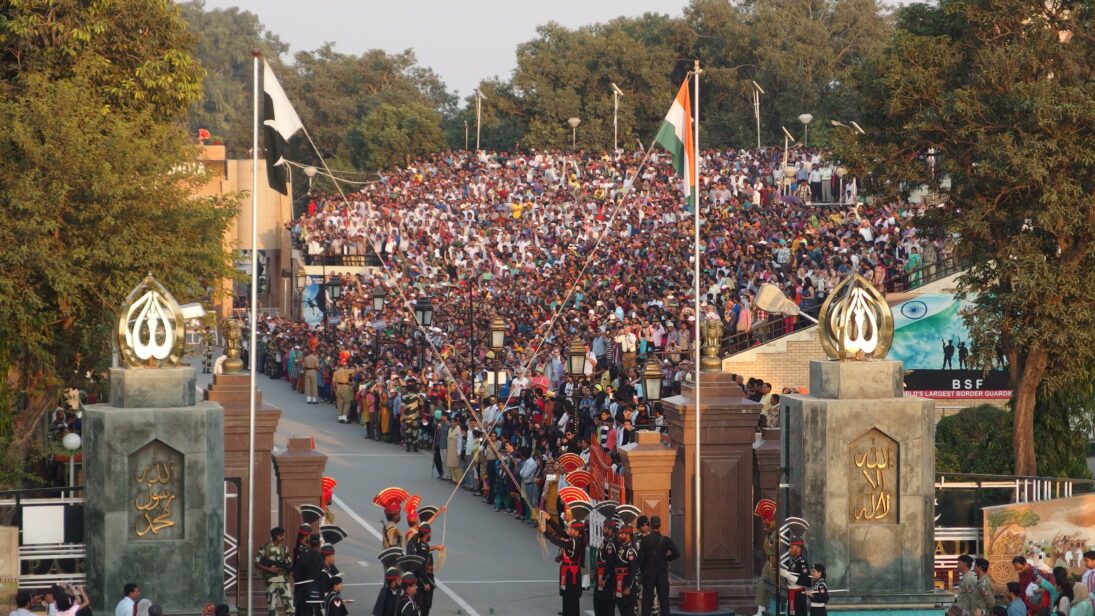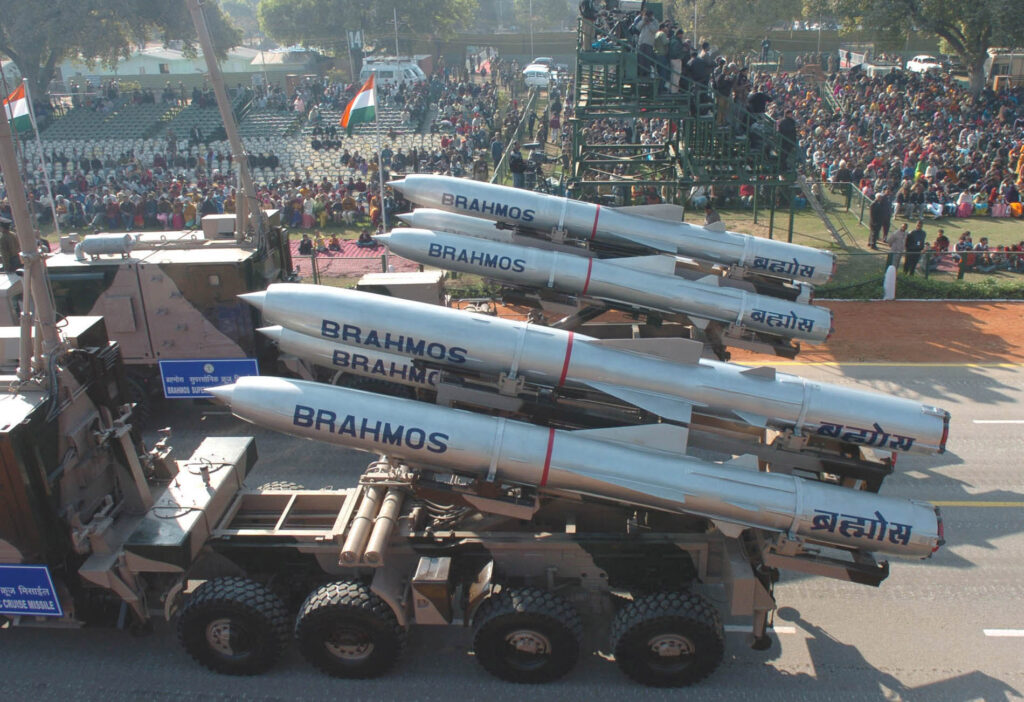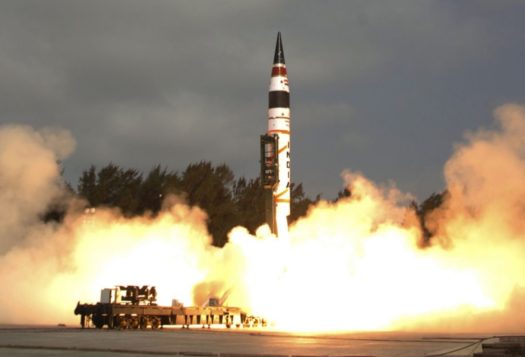
Pakistan has surprised India twice in the past month. Most recently, Pakistani Prime Minister Imran Khan praised India’s position on the Russian invasion of Ukraine for maintaining “an independent foreign policy” for the “betterment of people.”
Prime Minister Khan’s remarks came amid Pakistan’s refrain from taking action when a misfired Indian cruise missile accidentally landed in Pakistani territory. India, for its part, has acknowledged that an inquiry is underway—papering over the legitimate questions that arose over its lack of transparency immediately after the missile crashed and its failure to keep Pakistan informed of the mishap. Though the supersonic missile did little damage, the knowledge that it was a “dual-use” BrahMos missile could have proven a trigger for crisis escalation.
Fortunately, the context is one of rare convergence on India and Pakistan’s delicate positioning concerning Russia’s war in Ukraine. Both India and Pakistan have tried to maintain cordial relationships with Ukraine and its backers—the United States and the North Atlantic Treaty Organization (NATO)—and Russia. While Prime Minister Imran Khan was present in Moscow when Russia launched the armed attack on Ukraine, Pakistan remained neutral during a UN vote on Ukraine. India also abstained at multiple fora where Russia’s action came up for censure: in the United Nations Security Council, the General Assembly, and the Human Rights Council. Thus, when India and Pakistan found themselves in a similar predicament on the war in Ukraine, the two sides were able to take a wide-angled view and move past the missile episode soberly.
…When India and Pakistan found themselves in a similar predicament on the war in Ukraine, the two sides were able to take a wide-angled view and move past the missile episode soberly.
Their similar positioning on Ukraine comes at the heels of growing cooperation in other arenas, which, when coupled with their non-confrontational attitude to the accidental missile launch, can potentially lead to this positive turn in their relationship becoming a trend.
Since reiterating the ceasefire on the Line of Control in February 2021, the two sides have been tentatively working through ways to get past their hostility. Their most recent instance of working together was on the humanitarian front, allowing for the transit of wheat from India through Pakistan intended as food assistance for Afghanistan.
Pakistan also avoided retaliating against the accidental missile launch since it is interested in improving its relationship with India now that its reaction to India’s revocation of Article 370 has run its course. Pakistan has thus far largely privileged a response in the aftermath of the abrogation of Article 370, rather than a re-upping of its proxy war. The outbreak of the COVID-19 epidemic in early 2020 also may have put a halt to any military action Pakistan may have contemplated against India.

China’s intrusion into Ladakh and preoccupation with the U.S. withdrawal in Afghanistan may have also constrained Pakistan from upping the military ante. Faced with all those limitations, Pakistan has reportedly sounded India through back-channel talks to return a degree of autonomy to Kashmir. Since this initiative of Pakistan was in play during the misfired missile episode, Pakistan perhaps did not want to jeopardize it by overly embarrassing India.
On the back of an advantage, India is well on the way to organizing elections in Jammu and Kashmir. The afresh delimitation of constituencies is almost complete. India’s Home Minister has indicated the way forward as being elections followed, at a suitable time, by a return to statehood. India would be loath to have a crisis with Pakistan derail its plans. Therefore, after some initial demur, India acknowledged its mistake in accidentally launching the missile, thereby nipping the potential crisis in the bud. The Indian Defense Minister’s statements in parliament accepting the mistake and launching a high-level inquiry into the matter was intended to also reassure Pakistan. However, to fully follow through on reassurances to Pakistan, the inquiry must comply with recommendations to follow through on the Memorandum of Understanding dating to the Lahore Declaration of 1999.
Improved relations between India and Pakistan best explain the absence of a crisis sparked by the misfired missile landing in Pakistan.
India’s inquiry into the launch could also provide cover for the country to move forward with measures set out in the Lahore Declaration, which were arguably measures that—had the two sides undertaken two decades prior—would have established the necessary protocols to respond to such an incident.
Improved relations between India and Pakistan best explain the absence of a crisis sparked by the misfired missile landing in Pakistan. For Pakistan, the advantage would be in posturing that their intercession with India—even if off the radar screen—led up to the action, hoping to incentivize Indian reciprocation in cooperation on Kashmir. On the other hand, India would prefer that Pakistan not complicate the BJP’s recent victories regarding the Union Territory assembly elections. The maturity of India and Pakistan in the wake of the misfired missile signals improved relations and reflects their growing impetus to strengthen CBMs, enabling both to move in tandem on other contentious bilateral issues.
Editor’s Note: This article is part of a three-part series featuring authors from India, Pakistan, and the United States reviewing the implications of India’s accidental missile launch on March 9, how it happened, why relative calm ensued, and what the crisis reveals about India-Pakistan relations and prospects for Confidence Building Measures (CBMs) in the future. Read the full series here.
***
Click here to read this article in Urdu.
Image 1: Guilhem Vellut via Flickr
Image 2: Public Resource via Flickr


